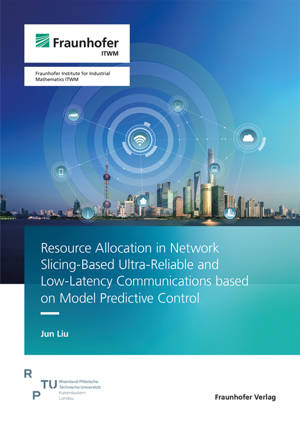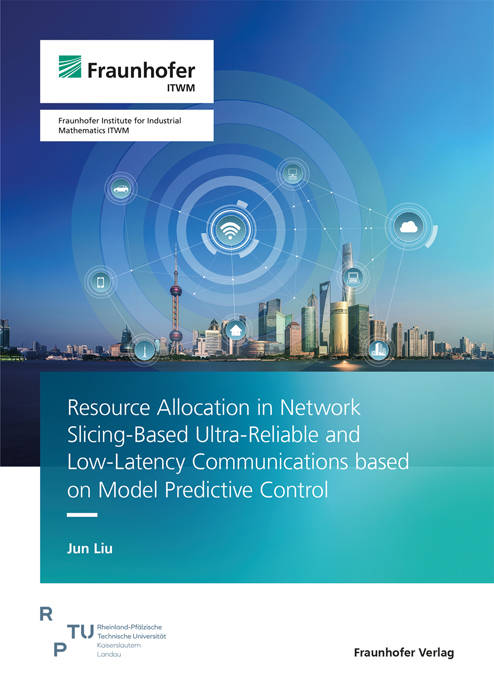
- Afhalen na 1 uur in een winkel met voorraad
- Gratis thuislevering in België vanaf € 30
- Ruim aanbod met 7 miljoen producten
- Afhalen na 1 uur in een winkel met voorraad
- Gratis thuislevering in België vanaf € 30
- Ruim aanbod met 7 miljoen producten
Zoeken
Resource Allocation in Network Slicing-Based Ultra-Reliable and Low-Latency Communications based on Model Predictive Control
Jun Liu
Paperback | Engels
€ 69,45
+ 138 punten
Omschrijving
Various 5G technologies and structures benefit both latency-sensitive and high-reliability-dependent users. As a use case that can enhance many safety-critical tasks, uRLLC requires extremely low latency and high system reliability. Such requirements raise difficulties in studying the system and UE behavior under extreme conditions.
To address the characteristics of uRLLC and meet its Quality of Service (QoS) requirements, a typical uRLLC-type network slice resource allocation problem is considered. Latency and reliability factors are comprehensively analyzed and reformulated in terms of data rate optimization. To enhance system robustness and performance under varying conditions, Model Predictive Control (MPC)-based solutions are employed. Additionally, various architectures and corresponding algorithms are proposed, emphasizing computational efficiency, compatibility, and scalability. A parameter study is also conducted to identify key optimizations and further improve overall system performance.
To address the characteristics of uRLLC and meet its Quality of Service (QoS) requirements, a typical uRLLC-type network slice resource allocation problem is considered. Latency and reliability factors are comprehensively analyzed and reformulated in terms of data rate optimization. To enhance system robustness and performance under varying conditions, Model Predictive Control (MPC)-based solutions are employed. Additionally, various architectures and corresponding algorithms are proposed, emphasizing computational efficiency, compatibility, and scalability. A parameter study is also conducted to identify key optimizations and further improve overall system performance.
Specificaties
Betrokkenen
- Auteur(s):
- Uitgeverij:
Inhoud
- Aantal bladzijden:
- 233
- Taal:
- Engels
Eigenschappen
- Productcode (EAN):
- 9783839620755
- Uitvoering:
- Paperback
- Afmetingen:
- 148 mm x 210 mm

Alleen bij Standaard Boekhandel
+ 138 punten op je klantenkaart van Standaard Boekhandel
Beoordelingen
We publiceren alleen reviews die voldoen aan de voorwaarden voor reviews. Bekijk onze voorwaarden voor reviews.











